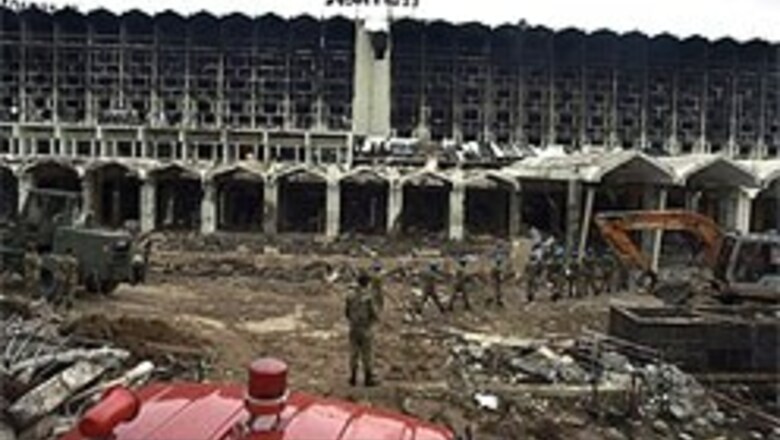
views
Washington: Describing Pakistan as "the intersection of nuclear weapons and terrorism", a top US Congressional panel has warned that the next terror attack on America is likely to originate in its ally's tribal areas.
While observing that Pakistan is a US ally, the commission on weapon of mass destruction (WMD) and terrorism said "the next terrorist attack against the United States is likely to originate from within the Federally Administered Tribal Areas" in Pakistan.
The US says the tribal areas in northwest Pakistan, where the government exerts little control, are a haven for militants from both Pakistan and neighbouring Afghanistan.
The commission also expressed particular concern about the nuclear programmes of Iran and North Korea, and about Pakistan, which it described as "the intersection of nuclear weapons and terrorism."
It warned that there is a threat of nuclear terrorism, both because more countries are developing nuclear weapons and because some existing nuclear powers are expanding their arsenals.
"Terrorist organizations are intent on acquiring nuclear weapons," said the report, which was published Tuesday on the internet and will be officially released Wednesday.
It cited testimony before the commission from former Senator Sam Nunn, who said that the "risk of a nuclear weapon being used today is growing, not receding."
The commission was created in line with a recommendation from the 9/11 Commission on the Sep 11, 2001 terrorist attacks on the US.
But terrorists are likely to use a weapon of mass destruction somewhere in the world in the next five years, former Senator Bob Graham, chairman of the commission was quoted as saying by CNN Tuesday.
They are more likely to use a biological weapon than a nuclear one - and the results could be devastating, Graham said.
"The consequences of a biological attack are almost beyond comprehension. It would be 9/11 times 10 or a hundred in terms of the number of people who would be killed," he said.
PAGE_BREAK
He cited the flu virus that killed millions of people in 1918 as an example.
"Today it is still in the laboratory, but if it should get out and into the hands of scientists who knew how to use it for a violent purpose, we could have multiple times the 40 million people who were killed 100 years ago," he said.
The US government "needs to move more aggressively to limit" the spread of biological weapons, the commission said in its report. Graham warned that such measures would be costly, but were necessary.
Graham said a biological attack was more likely than a nuclear one because it would be easier to carry out.
Biological weapons "are more available," he said. "Anthrax is a natural product of dead animals. Other serious pathogens are available in equally accessible forms."
"There are so many scientists who have the skills to convert a pathogen from benign, helpful purposes into an illicit, very harmful weapon," he added.
The report recommends a range of measures, including increased security and awareness at biological research labs and strengthening international treaties against the spread of biological and nuclear weapons.
"Many biological pathogens and nuclear materials around the world are poorly secured-and thus vulnerable to theft by those who would put these materials to harmful use, or would sell them on the black market to potential terrorists," the report warned.




















Comments
0 comment